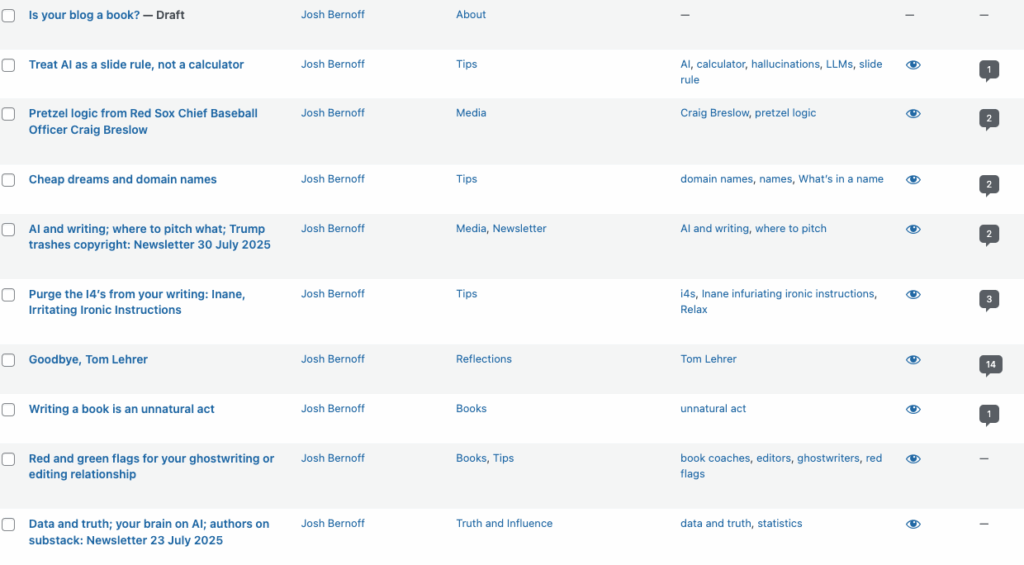Is your blog a book?

Short answer: no.
If you have a series of blog posts, podcasts, SubStacks, columns, or videos, turning them into a book seems like an obvious idea. After all, you have all this content teed up and ready. Why not just pour it into a book format and publish it?
Seth Godin, Guy Kawasaki, and Mark Manson have turned their blogs into books. Seems like an obvious idea, doesn’t it?
Why your blog is not a book
Here are a few reasons a blog usually doesn’t work as a book (and the same arguments here apply to your podcast or video series).
- Blogs posts are intended to attract attention. A series of attention-hungry blog posts will seem breathless when combined in a longer work.
- Nonfiction books are generally intended to solve problems. But blogs are written as a series of observations, not a collection of strategies to solve a problem.
- Blog posts are topical and timely. Books are supposed to be timeless. Often what you wrote in a blog post six months or two years ago has become obsolete — and will be even more out-of-date when you publish your book 12 months from now.
- Book chapters are typically a lot longer than the size of ideas in a typical blog post. A typical book chapter is 4,000 words long, while a blog post is often no more than 1,000 words.
Blogs and books are complementary
Instead of trying to turn your blog into a book, consider the blog and the book as parts of a broader system.
You can pilot ideas in your blog, then write them up in more detail in a book chapter. (I did this with both of my most recent books, Writing Without Bullshit and Build a Better Business Book.)
Often, the feedback on the posts you write helps you make the book chapter better.
A blog is also a great place to promote the book once it’s published.
But don’t just try to turn your blog into a book. It’s unlikely to hold together in a way that attracts publishers or readers.
Chris Brogan did this 15 years ago. I think the book did reasonably well. As expected, some reviewers remarked that anyone could just read the contnet for free on his blog—or at least you could back then.